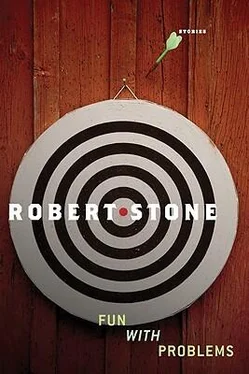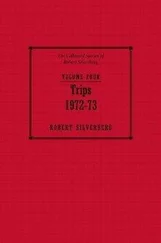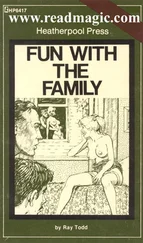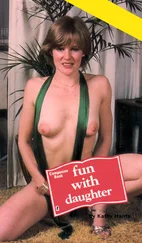I had batted out three original scripts in London. Mysteriously, the first two drew from my then agent — Mike? Marty? — more apparent sympathy than admiration. Out in the movie world, two of the three were promptly skunked. I was still used to being the boy wonder, and a midlife bout of rejection was unappealing. I didn't much like rejection. Maybe I had tried too hard, attempting to scale the new peaks of serious and adult, naively imagining for myself an autonomy that neither I nor anyone in the industry possessed. The third one, anyway, was optioned, went into turnaround and years later actually got made. But my deathless number expired.
Frustrated and depressed, I postponed calling Lucy. During my third week back I finally invited her down for another walk on the beach.
Climbing out of her dusty Jag, she looked nothing but fine. She wore turquoise and a deerskin jacket, my Fresno Indian. With her smooth tan, her skin was the color of coffee ice cream and her eyes were bright. Ever since watching her perform in the soap I had begun to think of her as beautiful.
As we set out down the beach, beside the Pacific again, she put on a baseball cap that said "Hussong's Cantina," promoting the joint in Ensenada. It was a sunny day even at the shore, and you might have called the sea sparkling. A pod of dolphins patrolled outside the point break, gliding on air, making everything in life look easy. Lucy told me she had tested for a part in our friend John's next movie, a horror picture. She was still worried about whether he had spotted the two of us walking out of Grauman's. The horror flick sounded like another bomb at best. This time Lucy had read the shooting script and knew what there was to know of the plot.
"She's a best friend. Supposed to be cute and funny. She dies."
I said that in my opinion she, Lucy, was ready for comedy.
"Tom, everyone pretty much dies horribly except the leads. It's a horror flick."
We had a nice day and night.
A week later I went up to Silver Lake, where Lucy had moved after selling her trailer in Malibu. Her bungalow had some plants out front with an orangy spotlight playing on them, and in its beam I saw that the glass panels on her front door were smashed and the shards scattered across her doorway. Among them were pieces of what looked like a dun-colored Mexican pot. This was all alarming, since her door would now admit all that lived, crawled and trawled in greater L.A. Moreover, there was blood. When she let me in I asked her about it but got no answer. She brought us drinks and I lit a joint I had brought and she began to cry. Suddenly she gave me a sly smile that in the half darkness of the patio reminded me of the weeping Indian maid I had rescued on the next seat at Grauman's.
"I'm in difficulty," she said.
I said I could see that. It turned out to be all about bloody Heathcliff, Brion Pritchard, still on the scene and newly cast in the horror movie. Third-rate art was staggering toward real life again: Brion was the man who got to stab her repeatedly in the forthcoming vehicle.
"How can they do that?" I asked her. "Another of John's movies and Pritchard gets to kill you again. Isn't that like stupid?"
"He's relentless," she said. "Tommy, don't ask! What do I know?"
I suppose it was I who should have known. Brion was in serious decline, succumbing to occupational ailments in a tradition that went back to the time of nickelodeons. He drank. A man of robust appetites, he also smoked and snorted and stuffed and swallowed. On top of it all, he had started lifting weights and pioneering steroids. He boozed all day and through the night, drove drunk, punched some of the wrong people. Along the Rialto, all this was being noted and remarked upon. He was a violent working-class guy, one of A. E. Houseman's beautiful doomed ploughboys, who but for talent and fortune would have drunk himself into Penrhyndeudraeth churchyard long before. Predictably, he had identified Lucy as the font of his troubles.
Shortly after dawn on the morning before my visit, Brion had come banging on Lucy's door, haranguing her in elegant English and low Welsh. Impatient to enter and mess with her, he had taken her ornamental pot and shoved in the door, cutting himself in the process, badly enough to sober him slightly and slow him down. This bought time for Lucy to call 911. She told me that when the cops came Brion gave them the old Royal Shakespeare, which by then in Hollywoodland impressed no on e. They all but begged her to press charges, although he had succeeded in hitting her only once, hard. Naturally she denied it heroically — I could well picture her playing that one — and sent them away. At least she hadn't raced to his side at the hospital.
That evening it was plain we were not going to have much of a party. I asked Lucy to come down to Laguna with me. She dawdled and I hung around until she turned me out. I was angry; moreover, I was feeling too much like what you might call a confidant. In the end I made her swear to get the door fixed or replaced, and I said I'd do it if she wouldn't. I told her to call the cops and me if the loutish Welshman accosted her again. I have to admit that if it came to action, I wanted the cops on my side.
Driving back that night I was unhappy. I had expected to stay with her. I should mention that in this period there occurred the last brief gas panic — odd- and even-numbered days and so on. In my opinion the fuel shortages of those years played their part in the vagaries of romance. People often went to bed with each other because their gas tanks were low.
I picked up work at that point with HBO, which had then started showing its own productions. The project involved several interviews around the country in the subjects' hometowns. It was a Vietnam War story, echoing the anger of the recent past. This took me out of town for the next three weeks. In a hotel in Minneapolis I picked up a USA Today with a back-page story announcing that Brion Pritchard was dead. It was shocking, of course, but in fact with the advent of AIDS a sense of mortality increasingly pervaded. We could not know it, but death was coming big-time. In that innocent age no one had imagined that anything more serious would happen to Brion than his dropping a barbell on his foot. I felt nothing at first, no relief, no regret. He was no friend of mine. On the way back to L.A., though, I became drunk and depressed, as if a fellow circus performer had fallen from a high wire. All of us worked without a net.
I had some doubts about calling Lucy too soon, mainly because I no longer fancied the role of consoler. Eventually I realized that if I wanted to see her again, I would have to endure it. When I called she sounded more confused than stricken. At first I couldn't be sure I had the right person on the line. My thought was: She doesn't know how she feels. This is a role thrust on her, and her feelings are down in some dark inaccessible region much overlaid. With what? Childish hungers, history, drama school? Capped by unacknowledged work and guilty ambition. A little undeserved notoriety of the tabloid sort. By then I thought I knew a few things about actors. I had been one myself years before.
When I saw Lucy next she gave a display of what I now recognized as false cheer. In this dangerous state she could appear downright joyous. When I expressed sympathy over Brion she gave me an utterly blank look. Being the pro she was, Lucy was almost always aware of how she looked, but the expression she showed me was unpremeditated, unintentionally conveying to me that Pritchard's death was literally none of my business, that neither I nor anyone else shared enough common ground with her and the late Heath-cliff, ensemble, for even polite condolences. But somehow, a couple of weeks later we found ourselves on the road to Ensenada. Ensenada and Tijuana could still be raggedy fun in those days. We managed to borrow a warped convertible from an actor pal and took off down the coast road. I hope we told him we were crossing the border.
Читать дальше












